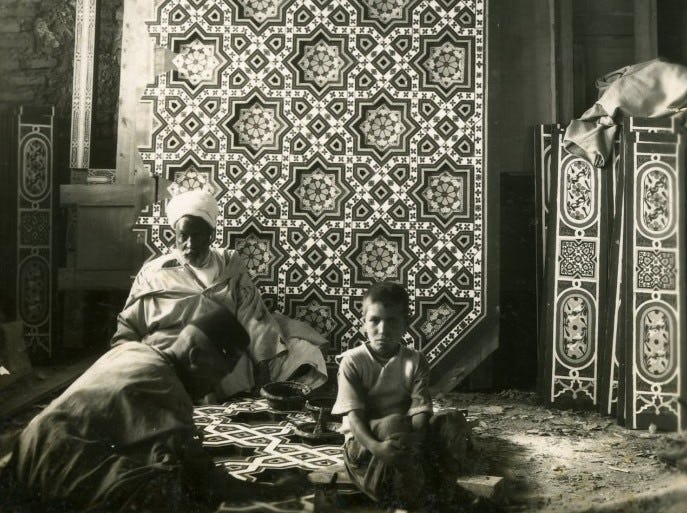Polychrome Wooden Panels with Arabic Poetry Inscriptions
DateDated 1271 AH (1854 - 1855 CE)
PeriodOttoman
MediumWood, polychrome pigments
DimensionsOverall: 106 1/2 x 45 1/2 in. (270.5 x 115.6cm)
ClassificationsWoodwork
Object number64.6.5a-c
DescriptionThis decorative niche (one of four) is called a kutbīyya (from the Arabic word kitāb, meaning book). It is designed to display books and precious objects within the qa’a, or reception hall, of a private home in Ottoman Damascus. Now located in the Ottoman gallery, it now holds brightly colored Iznik ceramics, fine glassware, and Ottoman textiles. The wooden panels surrounding the kutbīyya are decorated using a technique called ‘ajami, a technique in which gesso is applied to the woodwork in relief, painted with washes of brightly colored glazes, and illuminated with metal leaf.The panel above the kutbīyya contains an Arabic inscription in gilded thuluth script:
You are still in the conscience of existence wandering.
The inscription is part of a poem by Abū ʿAbdallāh Muhammad ibn Saʿīd al-Shanhājī al-Būṣīrī (1211–1294 CE). Al-Būṣīrī was a Moroccan-born Egyptian poet known for his poetry in praise of the Prophet Mohammed. The verse is continued on panels throughout the room.
On View
On viewCollections
Dated 1271 AH (1854 - 1855 CE)
Dated 1271 AH (1854 - 1855 CE)
Dated 1271 AH (1854 - 1855 CE)
Dated 1271 AH (1854-1855 CE)
Dated 1271 AH (1854 - 1855 CE)
Dated 1271 AH (1854 - 1855 CE)
Dated 1271 AH (1854 - 1855 CE)
Dated 1271 AH (1854 - 1855 CE)
Dated 1271 AH (1854 - 1855 CE)
11th -12th century
18th - 19th century















